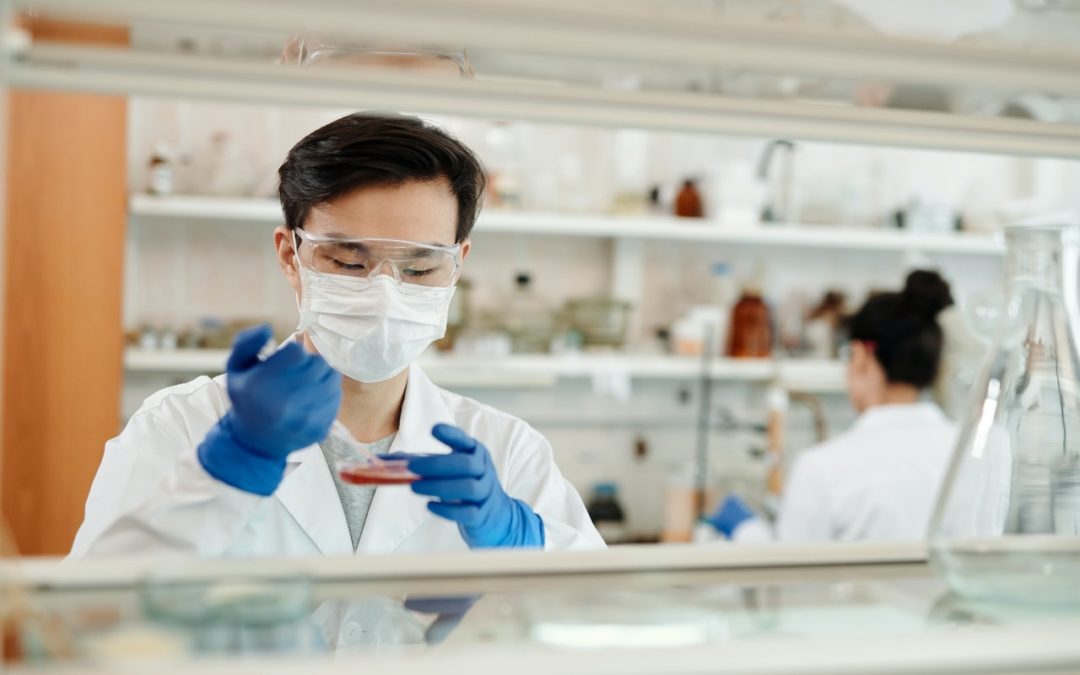It may be difficult for one to truly wrap their mind around how ketamine works to treat the symptoms of depression. After all, since the 1970s, ketamine has been primarily used as an anesthetic in hospitals, or as a drug commonly abused for recreational use to achieve anesthetic, dissociative, and hallucinogenic effects. Only recently have scientists uncovered the power of ketamine for depression. Ketamine therapy provides rapid treatment to patients who suffer from treatment-resistant depression, meaning they do not respond to the first, second, and even third line of treatments. In fact, ketamine can be effective within hours or days of treatment, unlike traditional antidepressants that can take months to show improvements—if they’re effective at all. In 2019, the FDA approved Spravato, a ketamine-related nasal spray. However, many ketamine clinics today also offer ketamine therapy intravenously. So how does ketamine work from a scientific standpoint? Let’s take a look.
How Does Ketamine Work?
Scientists have only recently been investigating how this treatment affects the brain and achieves life-altering results. Years ago, emergency responders started giving ketamine to patients in ambulances who had attempted or were about to attempt suicide as a way to calm them down. Shockingly, they found that a number of patients who received ketamine no longer had suicidal ideations. Through this, they realized that ketamine therapy may be a viable option for those struggling.
The Science Behind Ketamine for Depression
Scientists don’t yet know, conclusively, how ketamine works for depression. However, the research that has been done has given them clues about how and why this drug can be so effective. Ketamine may be responsible for changes in the brain’s synapses, or the point of communication in our brains between neurons where the majority of our vital brain activity emerges. Researchers have noted that patients who suffer from depression experience a loss of synapses in certain areas of their brains. Ketamine works for these patients by repairing damaged circuits. Lastly, studies have indicated that ketamine targets a receptor in the brain that traditional antidepressants leave out—glutamate. By targeting this neurotransmitter, ketamine produces and balances Gamma-Aminobutyric Acid (GABA). When GABA attaches to a protein in the brain called a GABA receptor, it produces a calming effect, which helps to reduce feelings of fear, depression, stress, and anxiety.
Ketamine May Also Affect Serotonin
A recent study by Translational Psychiatry shows that ketamine may also activate certain receptors in the brain that interact with serotonin, a multifaceted neurotransmitter that influences mood, appetite, memory, learning, and more. On their cell surfaces, neurons have 14 serotonin receptor subtypes, responsible for a myriad of different functions in our bodies. In the study, researchers were focused on a specific molecule that binds to serotonin 1B receptors. This binding causes serotonin 1B levels to decrease, and dopamine levels to increase. Dopamine is related to the reward circuits of our brain and elevates mood by increases positive feelings. Through this study, researchers found that ketamine may increase the number of serotonin 1B receptors. However, more research needs to be done for this theory to truly corroborate.
Ketamine for depression is a safe alternative to traditional medications when administered by a medical professional, and is effective in over 70% of patients with treatment-resistant chronic depression.
Contact JoyDeVie Infusions
Our ketamine clinic and wellness center is located in Green Bay, WI. We offer ketamine infusions for patients suffering from severe cases of treatment-resistant depression, as well as for chronic pain conditions. If you or a loved one is suffering, please contact us using the brief form below. We are happy to offer a free consultation to help answer your questions and determine if you are a candidate for ketamine infusions.

